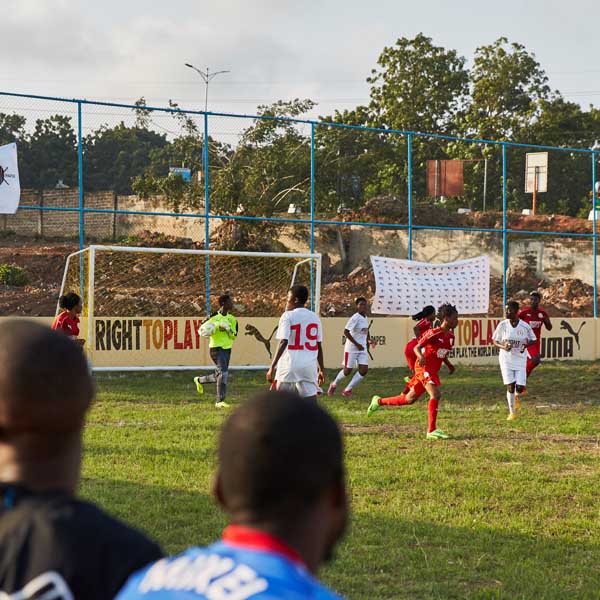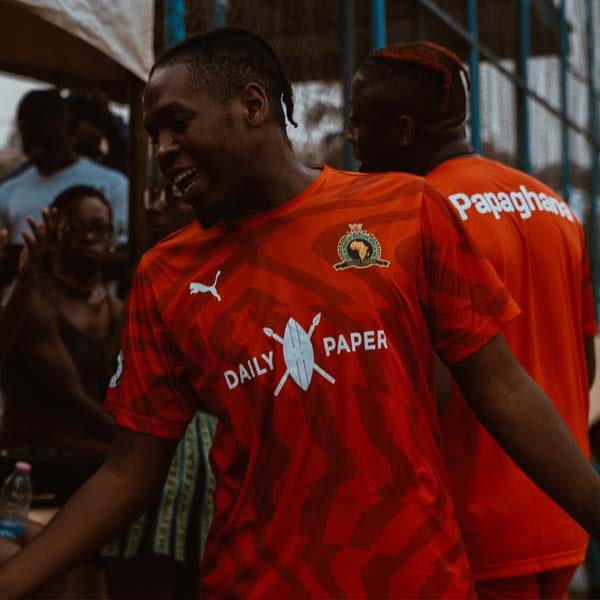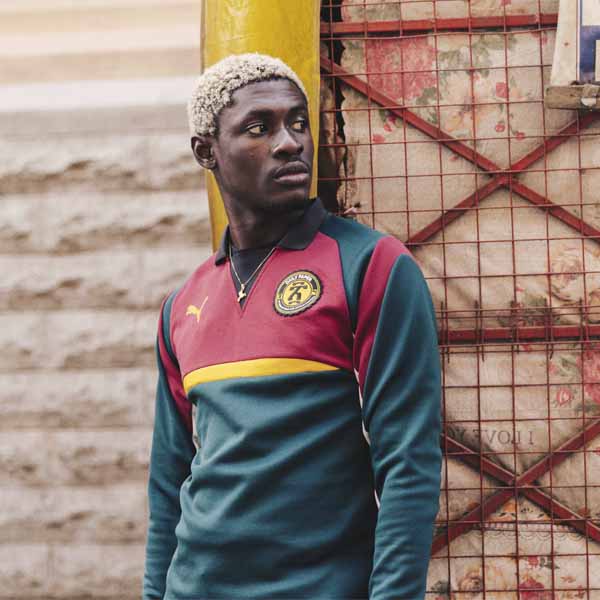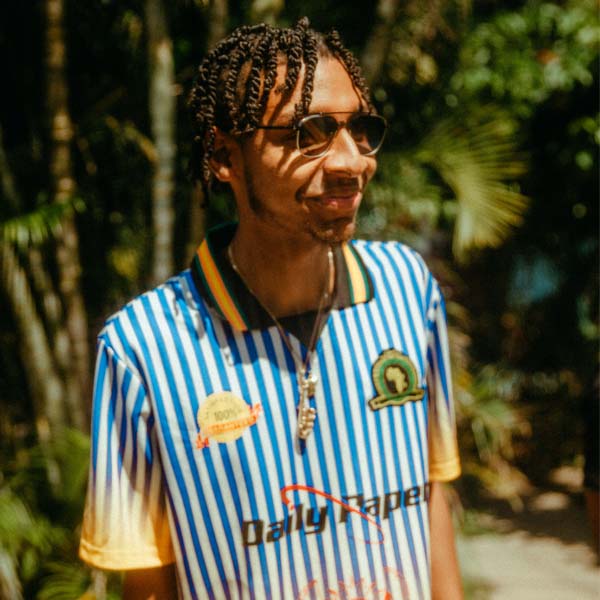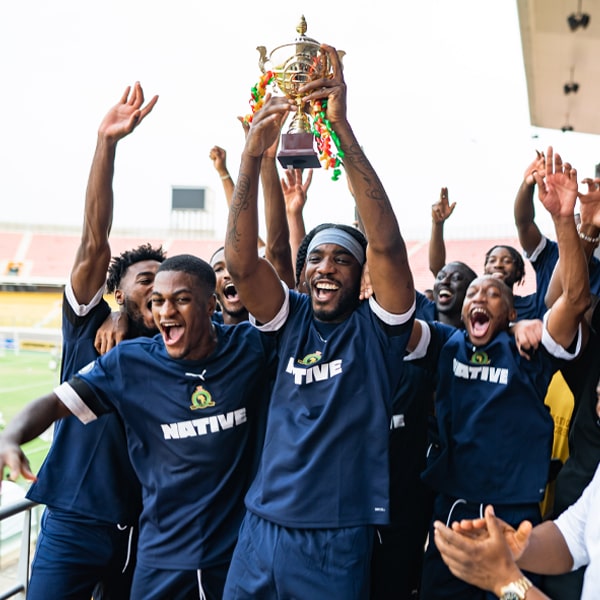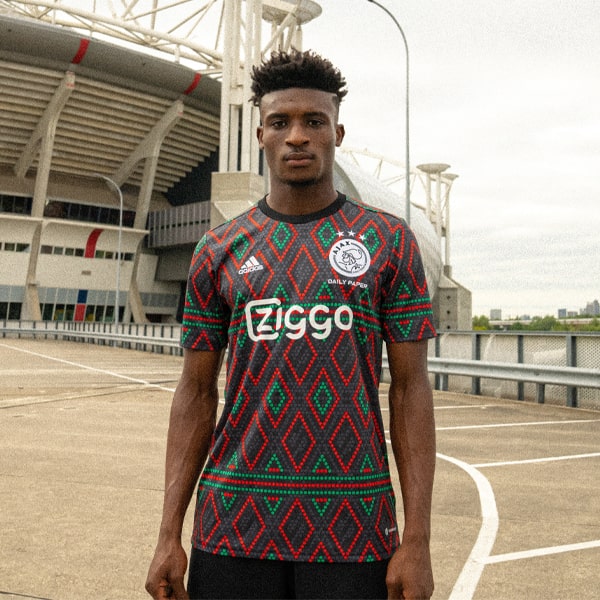Amsterdam-based fashion label Daily Paper have carved success from being unique with their own inspired designs born from their African roots. When PUMA were planning the 20th anniversary of their partnership with African Football, Daily Paper were the obvious brand to collaborate with. Discussing their AW17 collection and their role in building a legacy in Accra we spoke to the founding members, Jefferson Osei, Hussein Suleiman & Abderrahmane Trabsini.
As a blog-turned-fashion-label the guys at Daily Paper are used to attending weekly glitzy launch events across Europe, but for the launch of their AW17 collaboration with PUMA they wanted to give something back to a continent that has given them so much. So here we are, ducking for shade in Accra, Ghana, ahead of the opening of a brand new football facility, funded by Daily Paper and PUMA at the Accra Senior Girls School.
We sat down with the Daily Paper founders, all of whom are of African decedent. Below, from left to right: Jefferson Osei (Ghanian), Hussein Suleiman (Somalian) & Abderrahmane Trabsini (Moroccan).
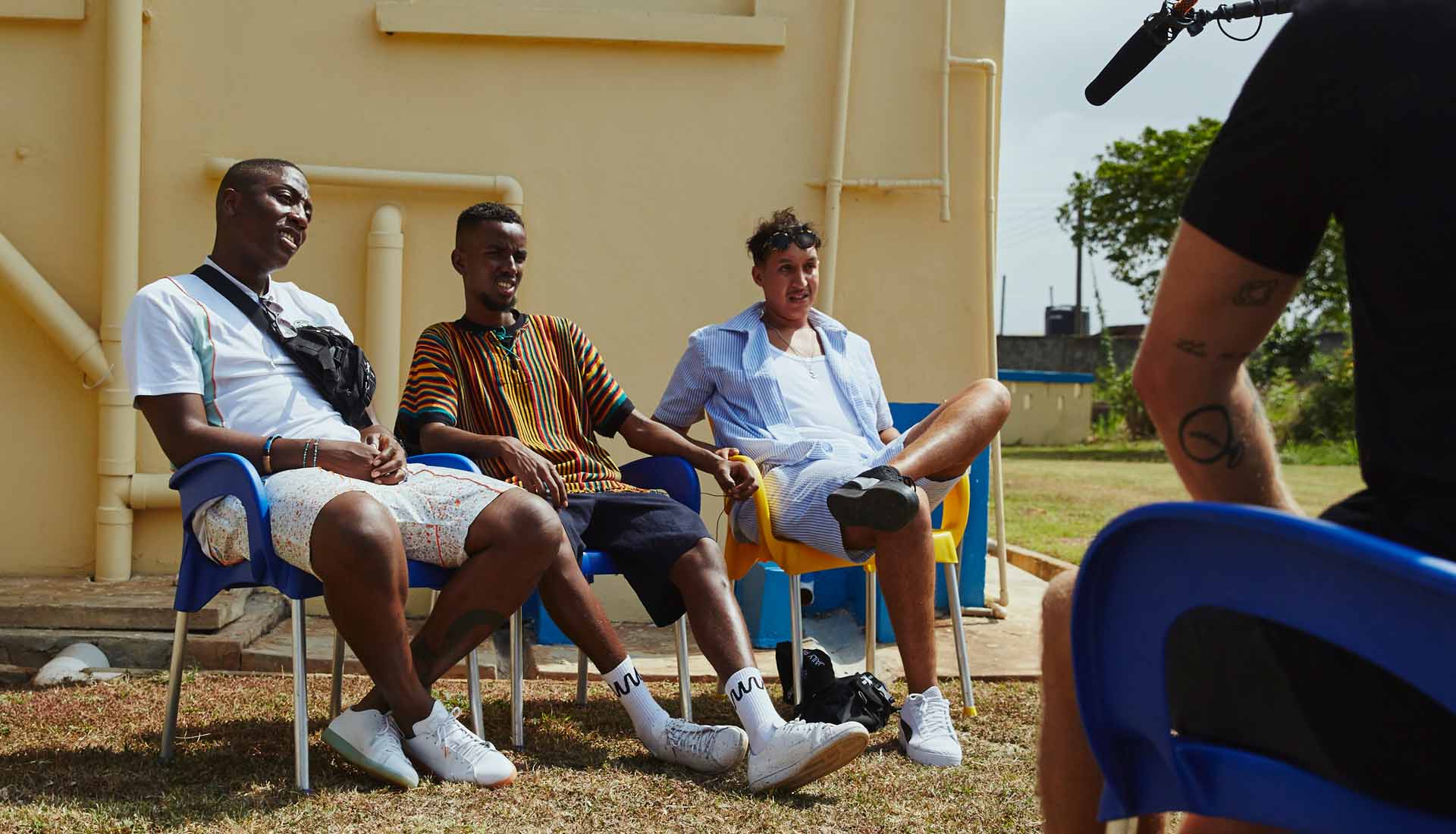
Guys, thanks for taking time out to speak to us here in Ghana. Can you tell us how Daily Paper started and what the objectives were?
Abderrahmane: Daily Paper started in 2008 as a blog and we wrote about things we liked; fashion, parties, whatever. Wherever we went, we wrote about it. In order to promote the blog we made t-shirts and the t-shirt sales went super well, and that presented us with the opportunity to make a clothing line out of it. Between 2010-2012 we began to look for manufacturers and in 2012 our first collection came out of five t-shirts. Our objective was always to be inspired by our African roots and do it in a modern way.
Hussein: Yeah, Jefferson is from Ghana, I’m from Somalia and Abde is from Morocco, and when we all met in Amsterdam to start the clothing line the thing that really connected us was our African roots, and being from Amsterdam we really wanted to show our backgrounds and where we are from. We didn’t jump on the back of any trends, we created our own.
Where did you find the inspiration for this collection?
Hussein: We all grew up in African households so we all had our own cultures. When we started Daily Paper every story started from our motherland or neighbouring countries or wherever and we’d do really in depth research about those places.
Abderrahmane: When we started Daily Paper I appreciated my culture more. We went to Morocco in 2014 to shoot a lookbook and I looked at Morocco in a different way. When I was little I use to go to Morocco every year for about six weeks by I didn’t learn much about my culture but doing Daily Paper has allowed us to do a lot of research and appreciate our amazing continent. From learning about history and times to progressive Africa now.
Jefferson: There are certain subcultures within Africa that the rest of people are not familiar with and through our collections and visuals we try to highlight those subcultures.
Hussein: There’s graffiti crews and skater crews here in Africa too, there’s amazing skaters from Ethiopia and Mozambique. Just because you don’t see them it doesn’t mean they don’t exist.
Each collection focuses on a sport. This PUMA collaboration is football. How exciting is that for you from a personal point of view?
Jefferson: It’s very exciting. I’ve been playing football since I was nine-years-old and I’ve always looked up to African team sport and football in general. One of my very first memories was Samuel Eto’o in a Cameroon jersey scoring the winning goal in the Olympics. Football is something very beautiful in Africa, it’s almost a religion, so for us to be working with PUMA on a collection is a dream come true, especially on the 20th anniversary of PUMA and African Football’s relationship.
Hussein: When we heard we were going to do a collaboration with PUMA football was the first thing that we thought about. Most African national sides are sponsored by PUMA and at one point it was all of them so the link was very easy so I think people will understand why we are doing this collection.
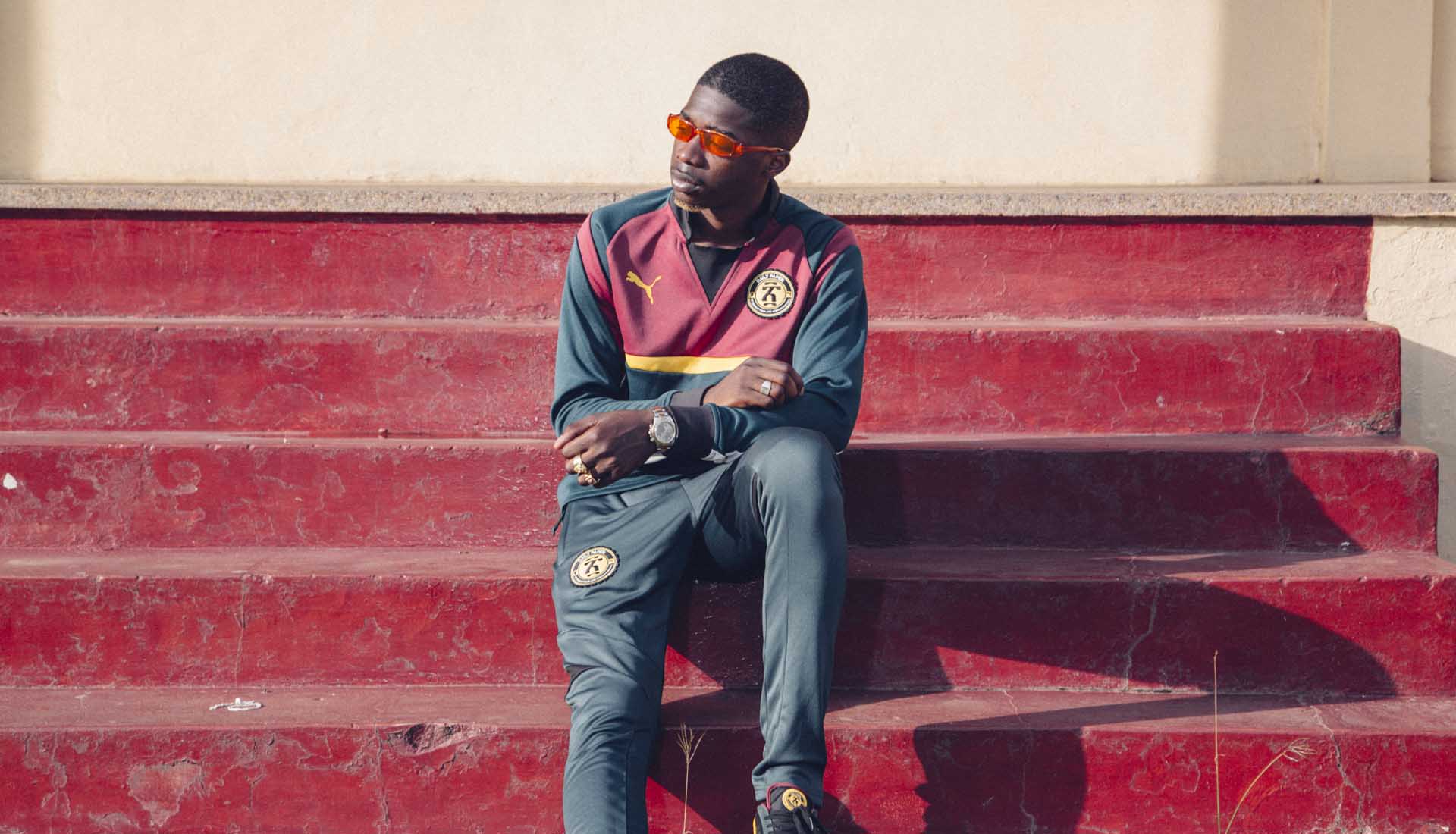
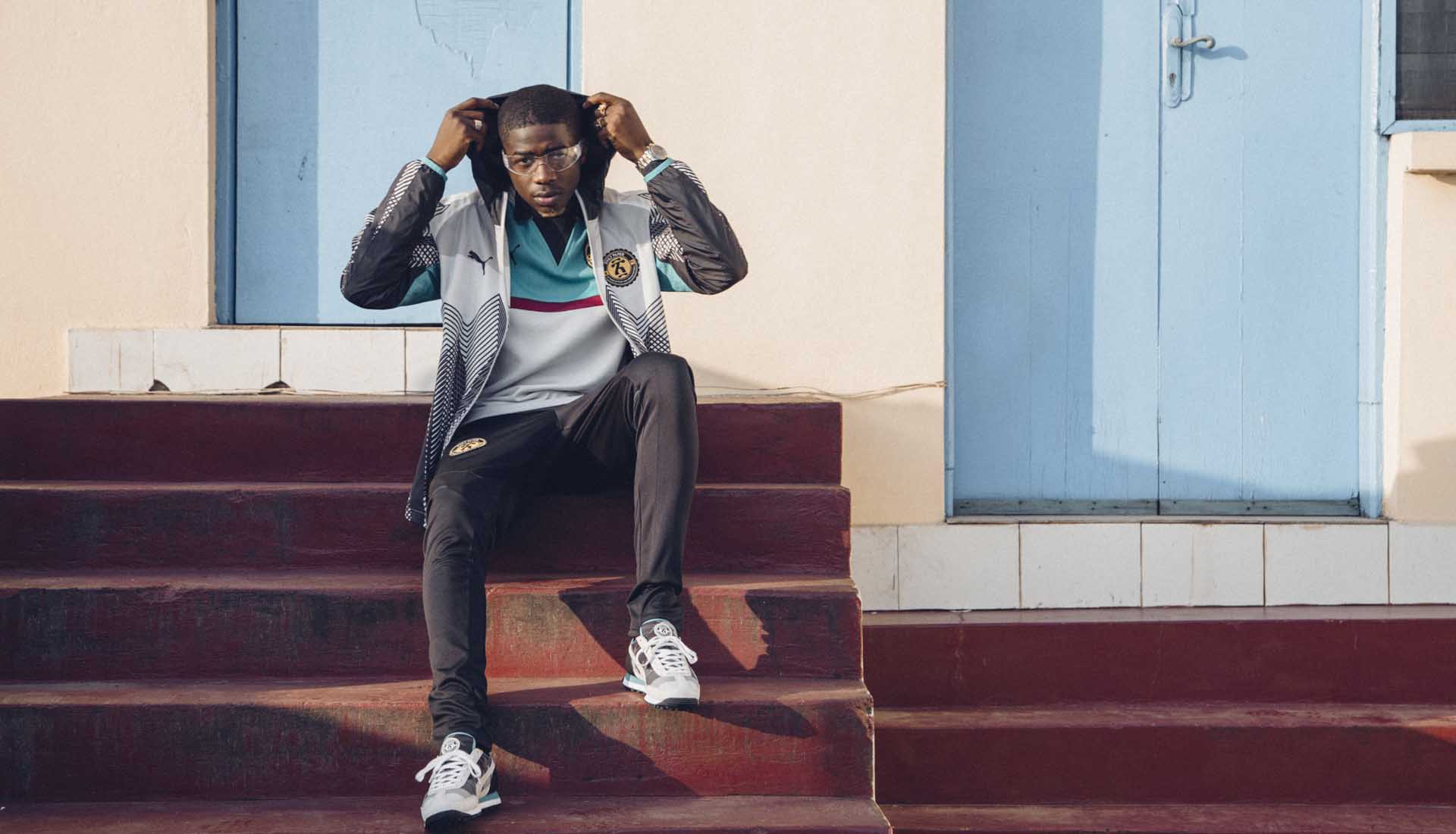
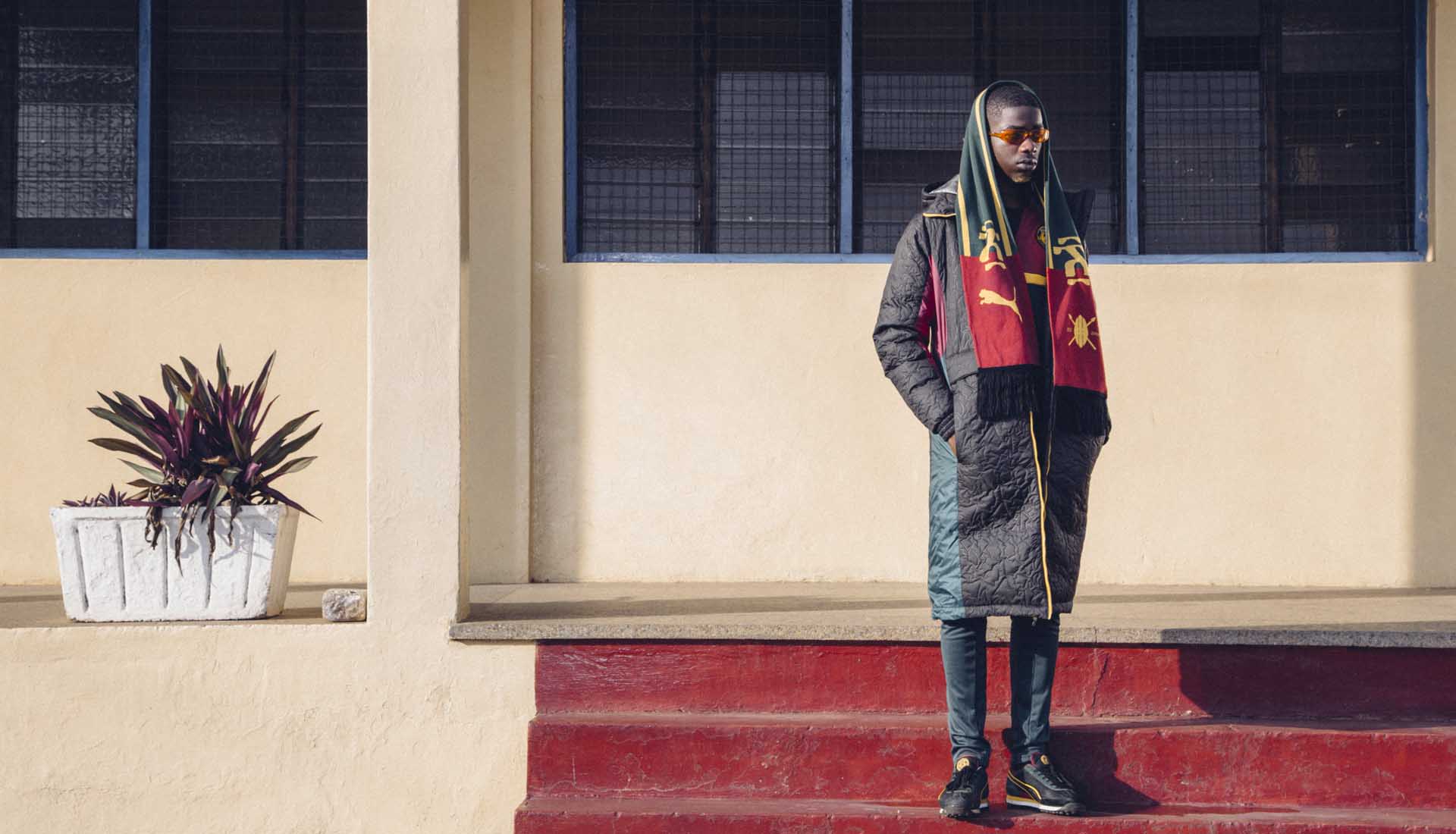
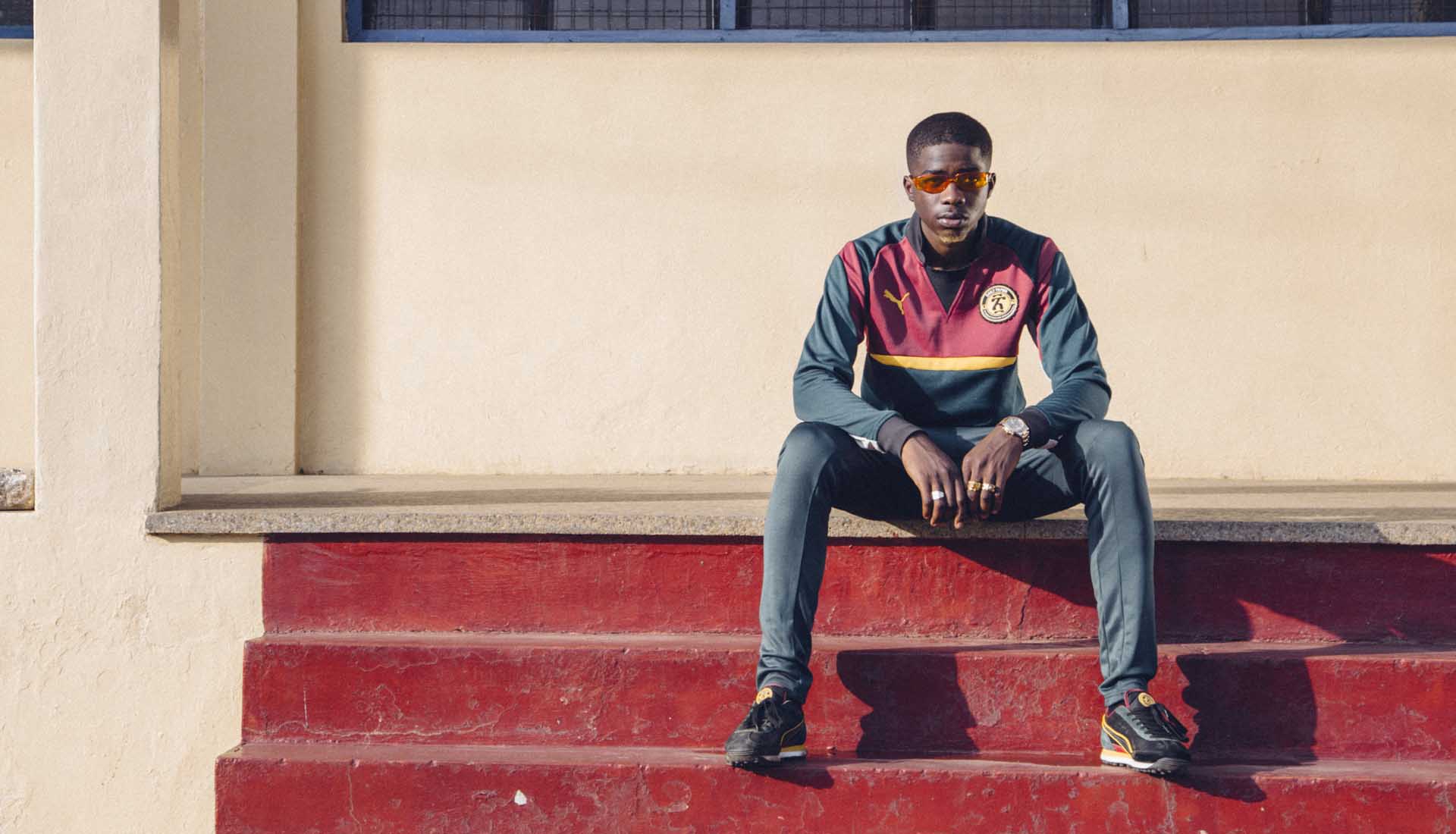
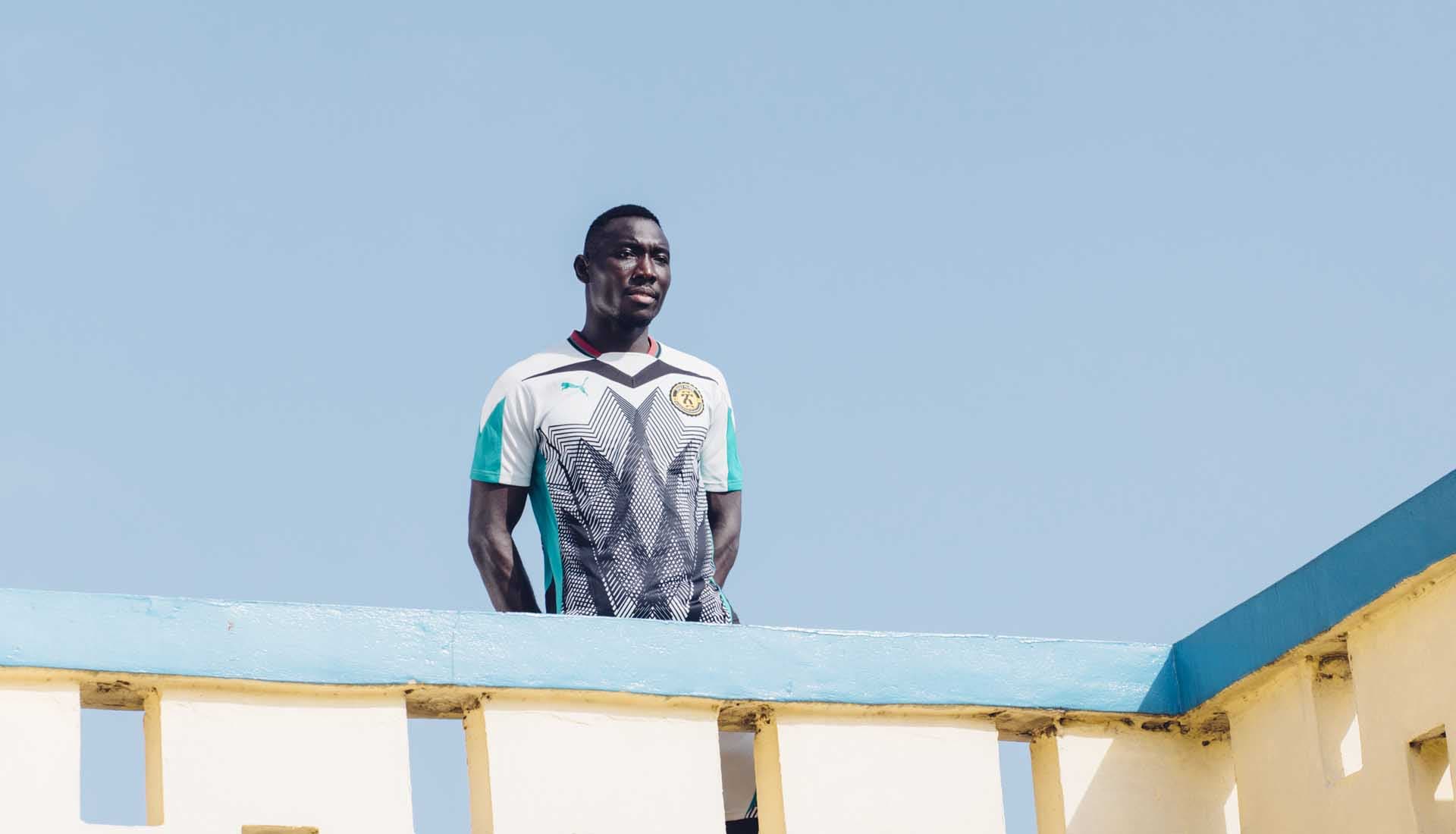
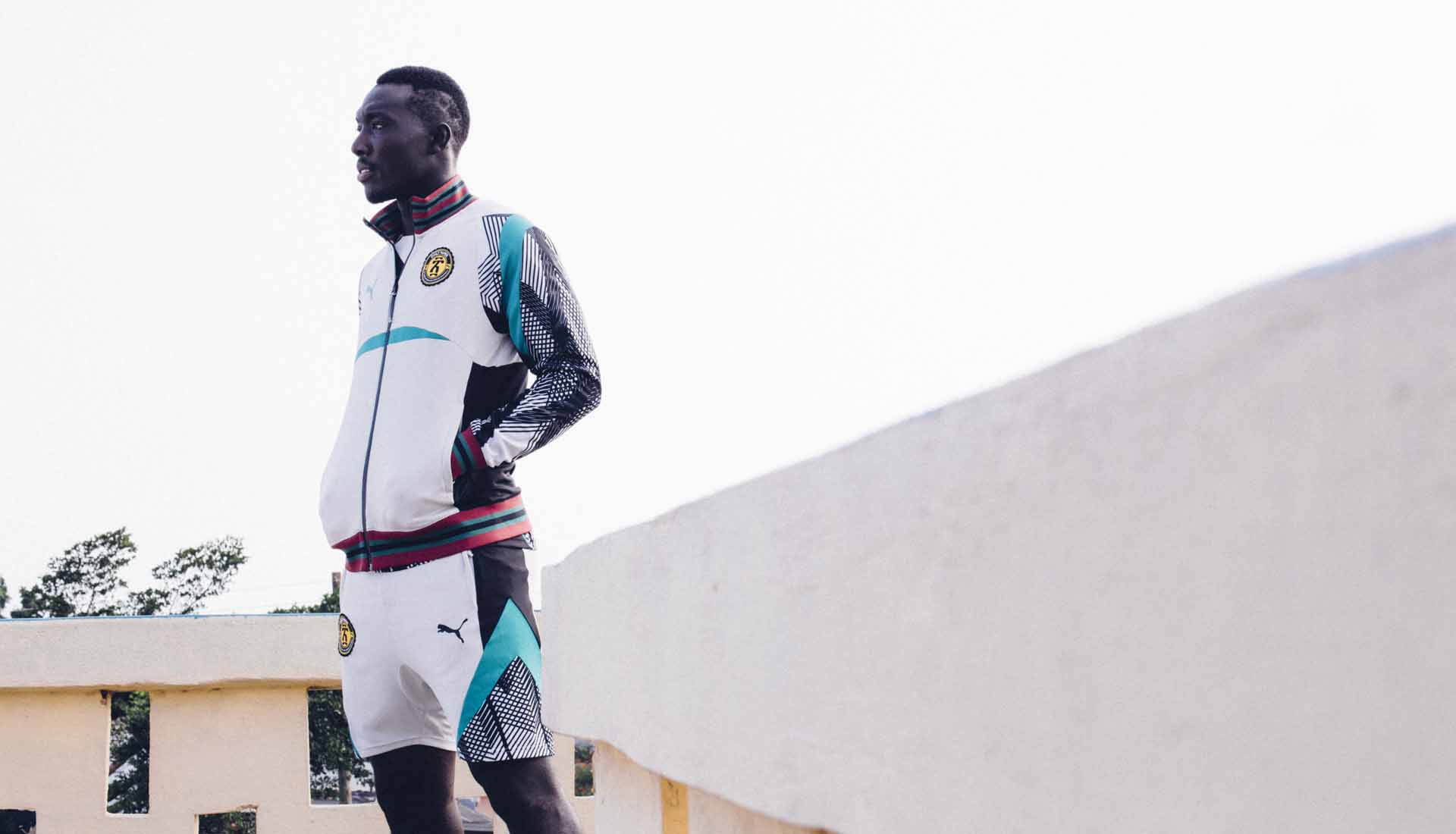
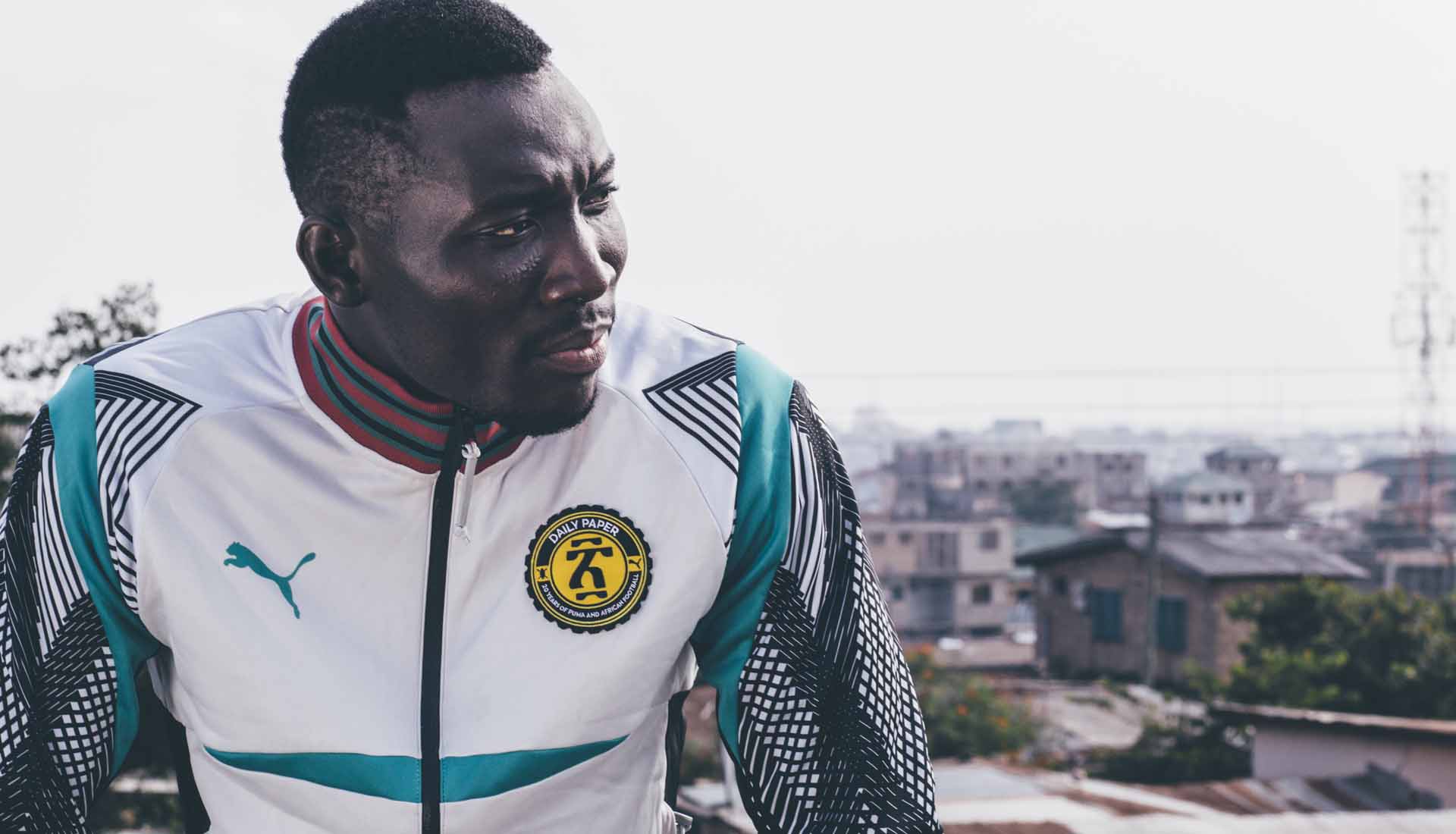
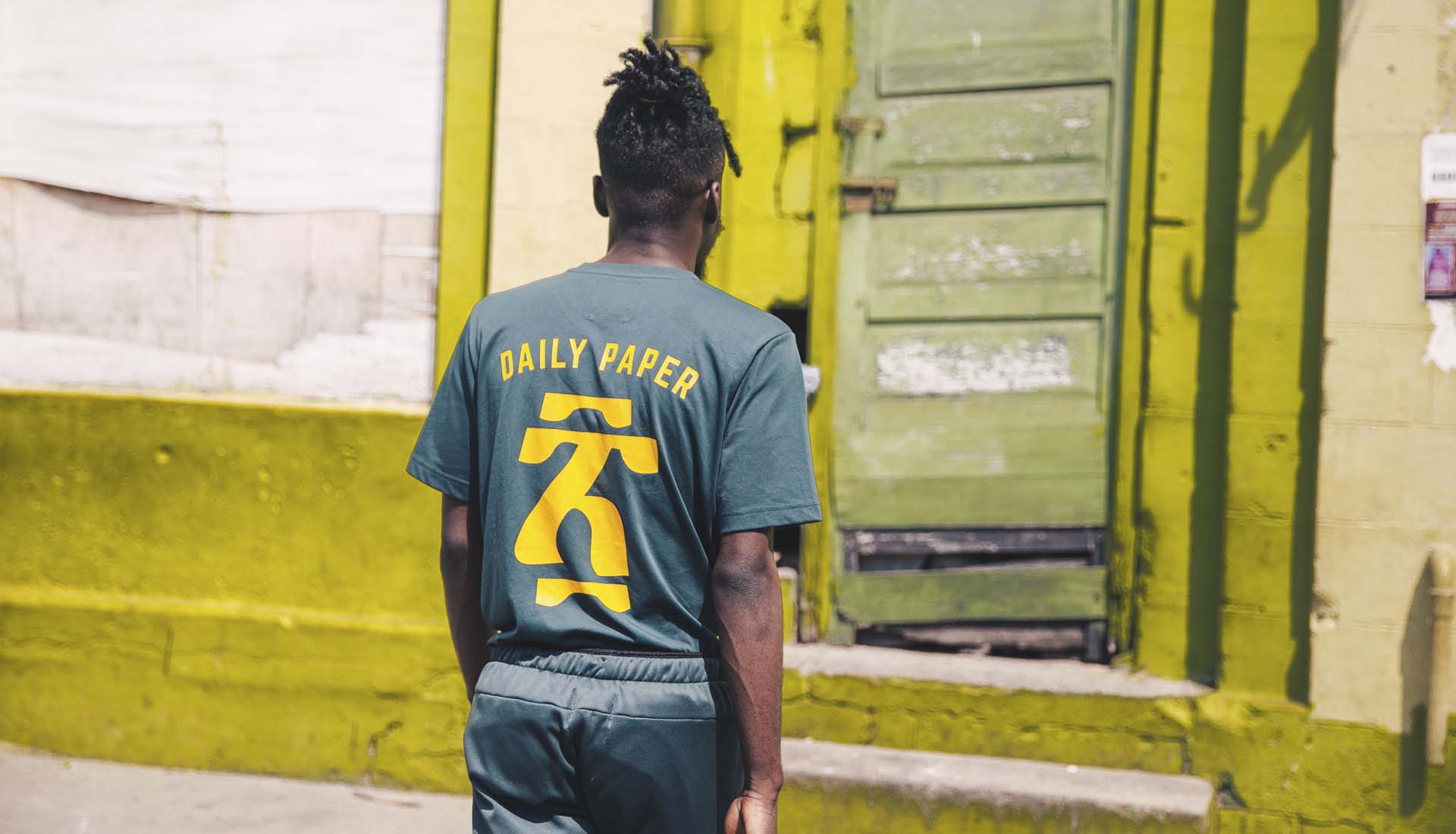
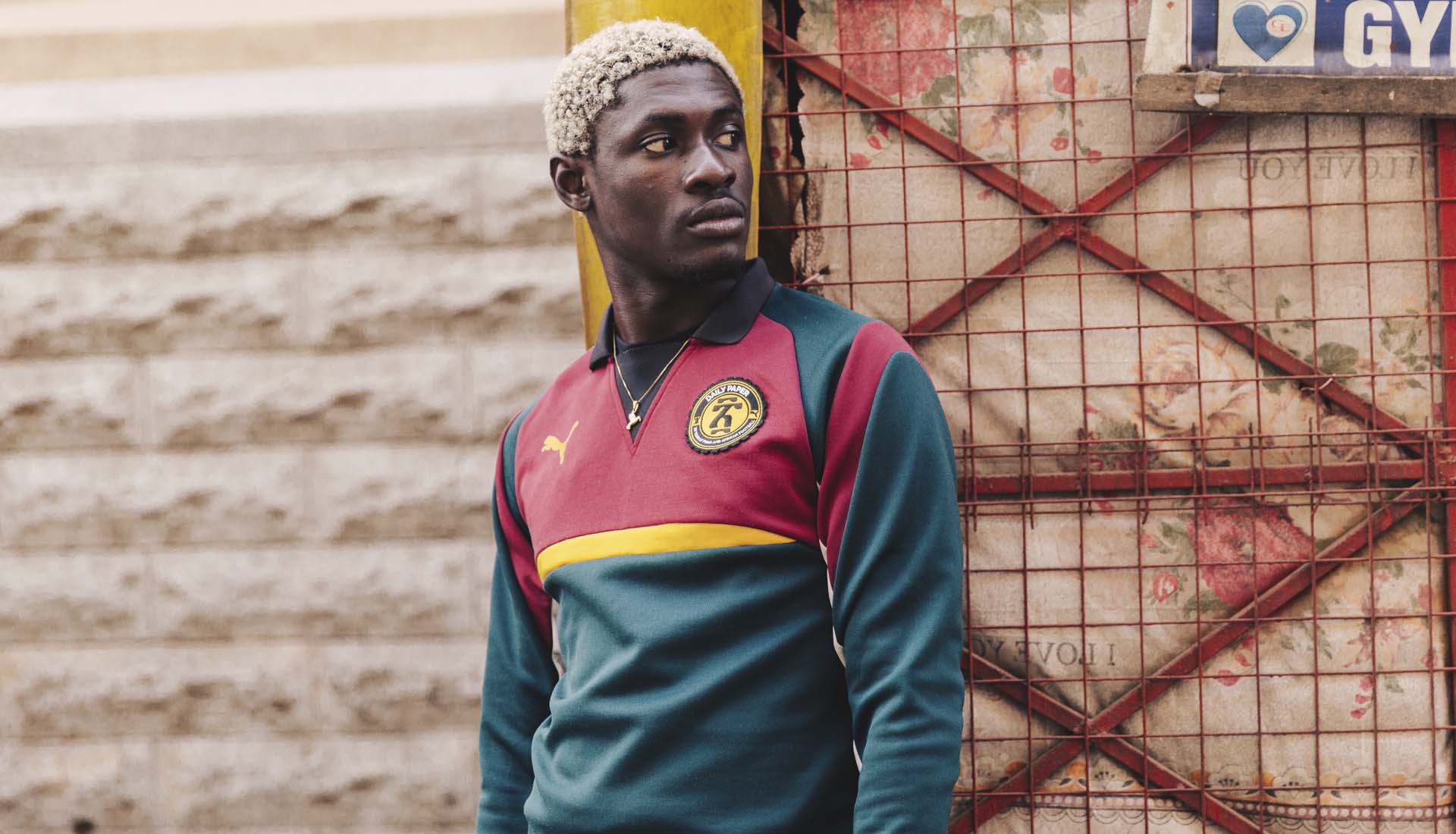
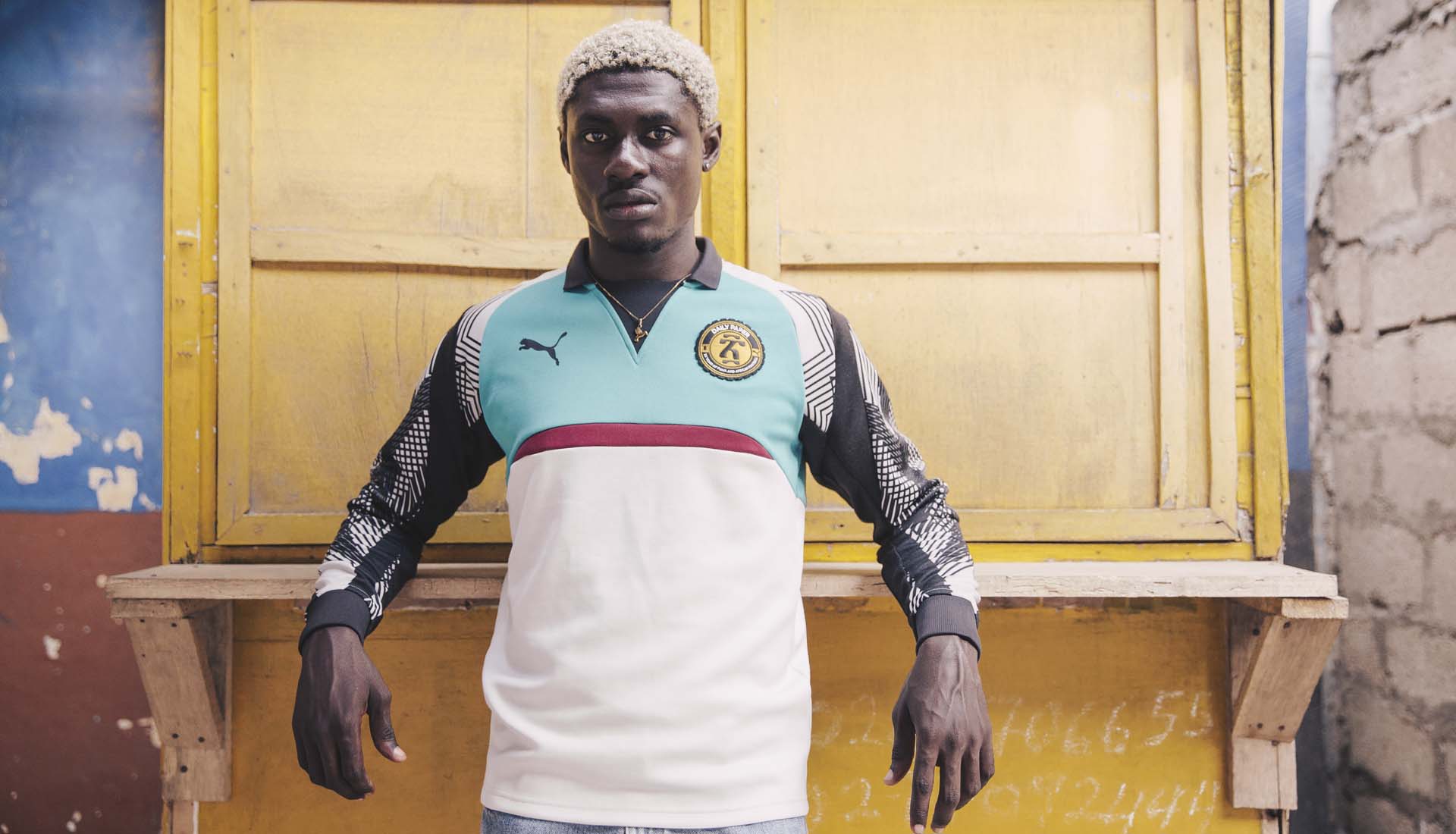
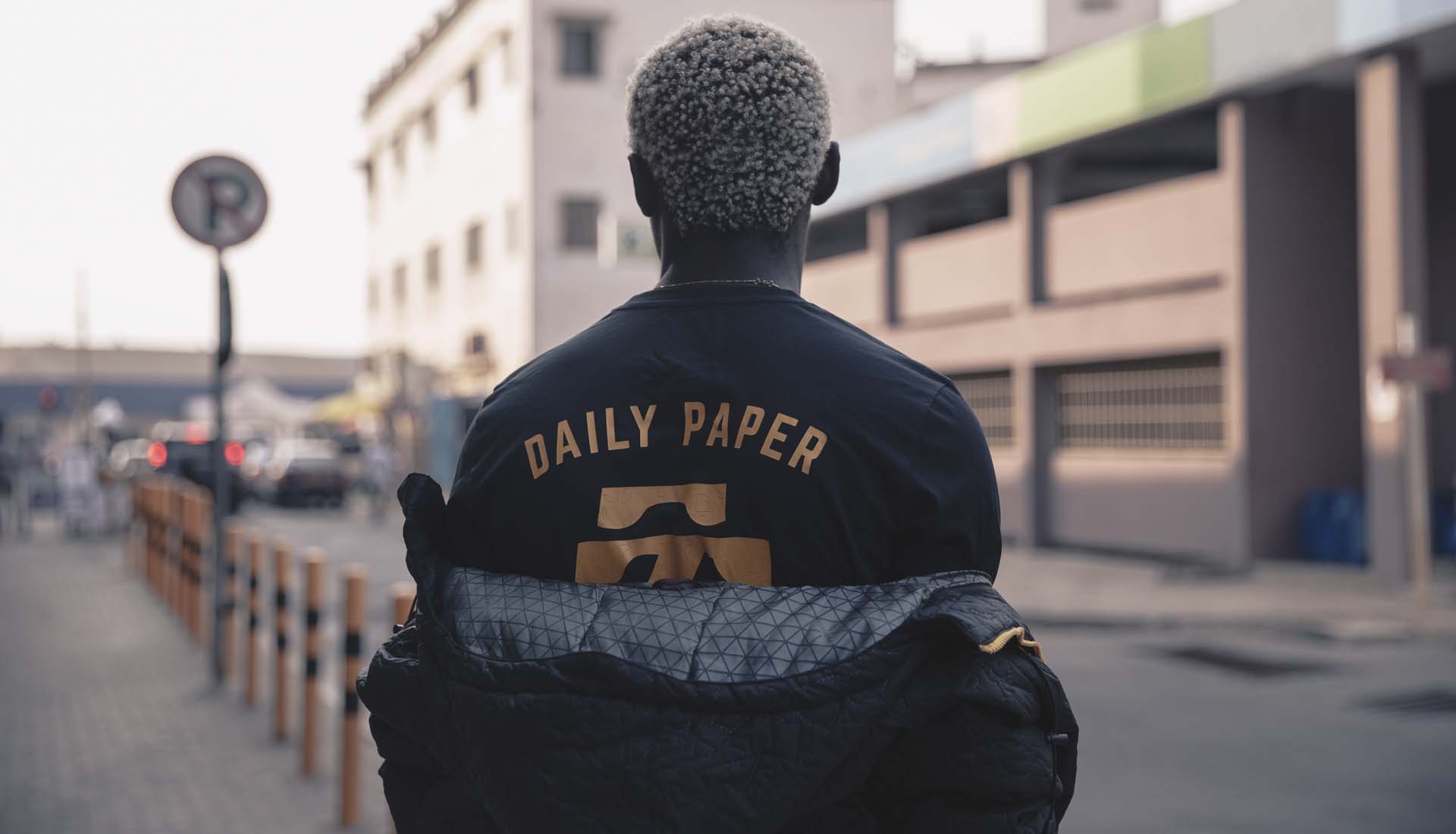
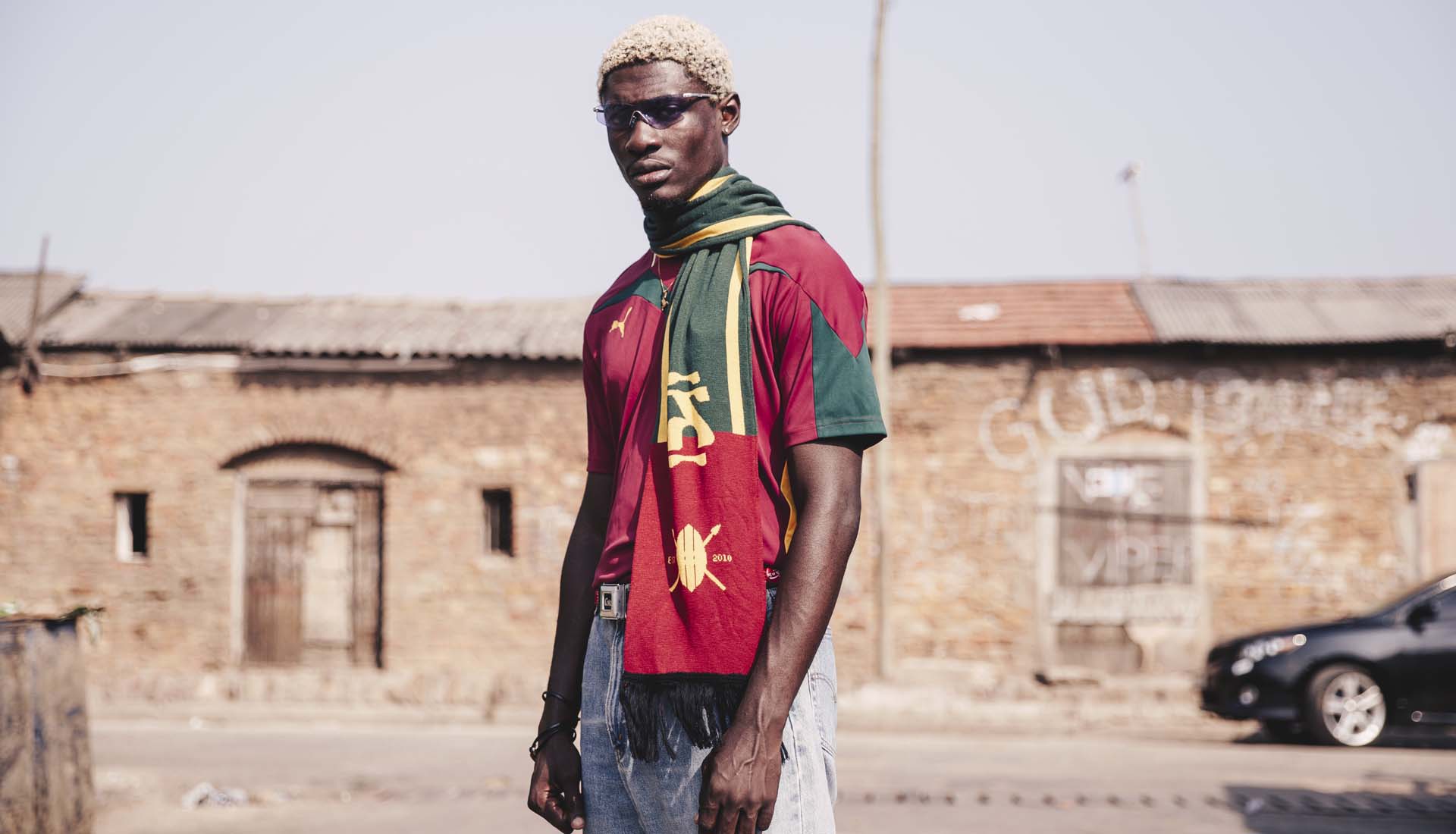
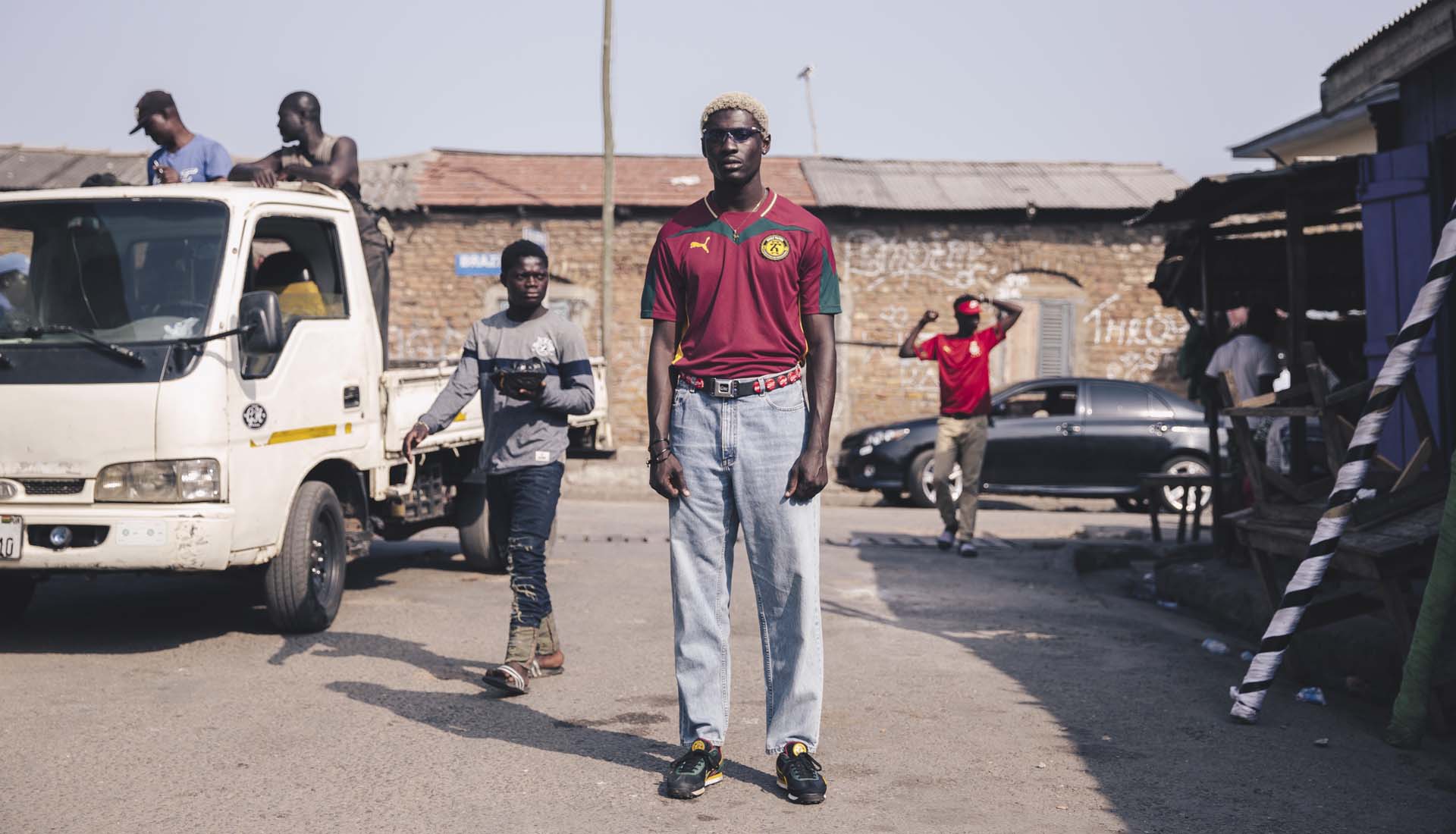
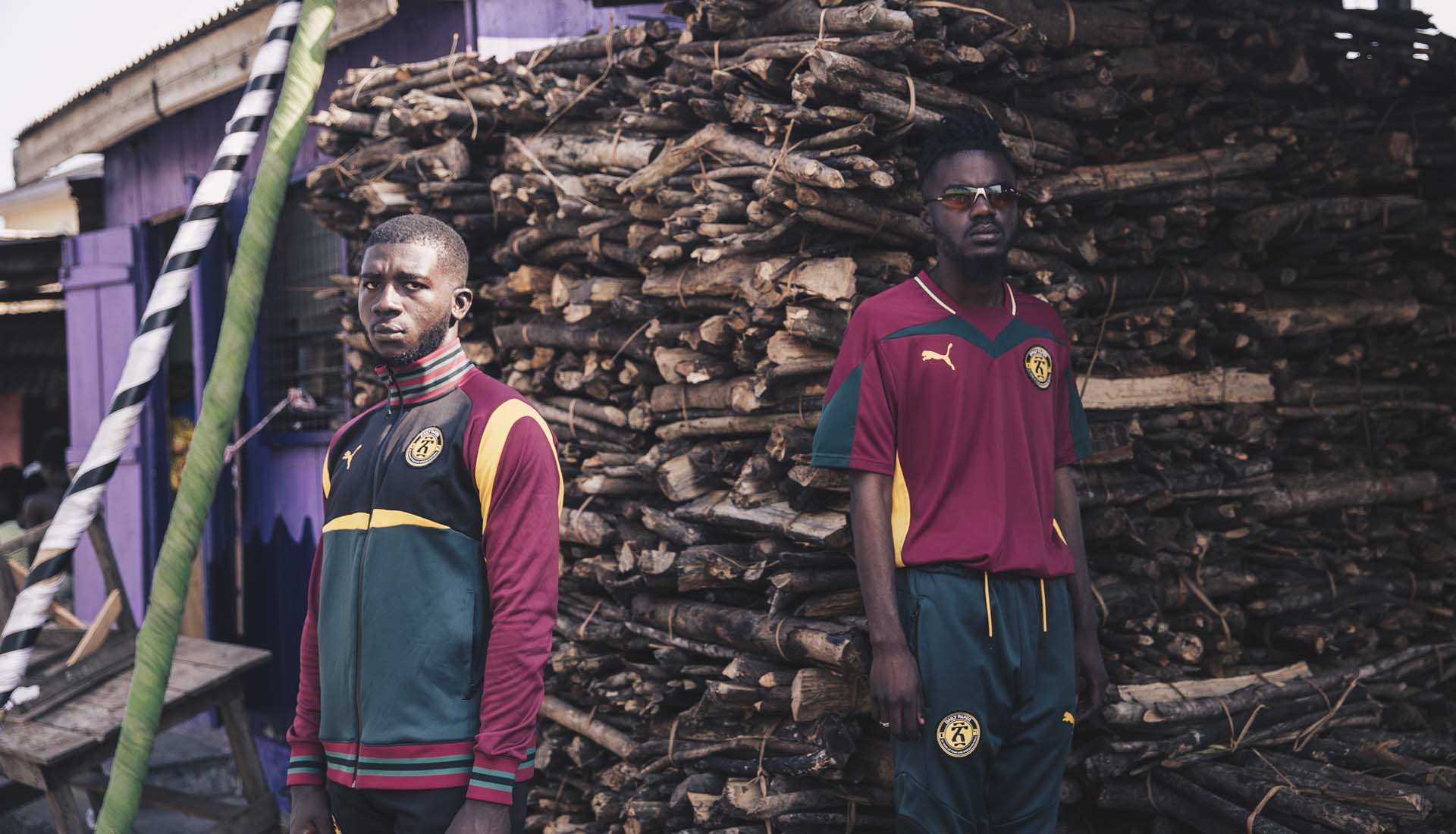
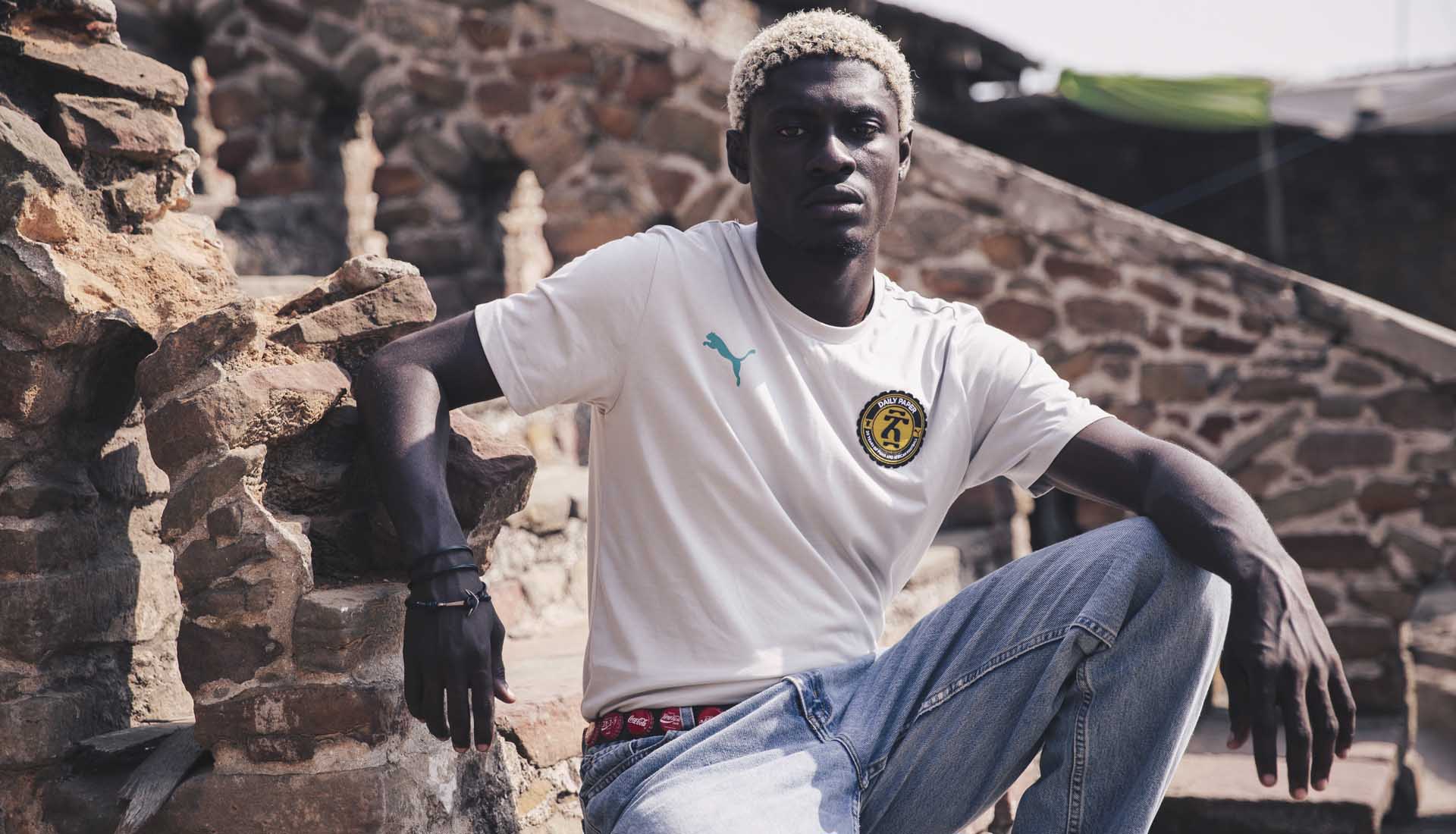
What was the inspiration specifically from football for this collection?
Jefferson: Classic jerseys from the early 90s to the early 00s, like the jerseys of Cameroon, Ivory Coast, Algeria, Ghana, Morocco. We basically blend all those jerseys into one collection and gave it a Daily Paper twist.
Abderrahmane: Especially the colourways.
Hussein: Also the unity of the continent. One thing about Africa and football is that they support each other. I’m from Somalia so I haven’t experienced a World Cup with my country but if Ghana are playing I’ll support Ghana, if Ghana are eliminated I’ll support Cameroon, if Cameroon are eliminated I’ll support Ivory Coast! You don’t have that in any other continent. If the Netherlands get knocked out of the World Cup I’m not going to support Germany or France or any other country. So we really wanted to translate that unity into our collection. If you look closely at the products you’ll see silhouettes from the country borders and printed on some of the clothes and shoes.
How would you compare football in Africa to football in Europe?
Jefferson: It really is like a religion here in Africa. Everyone is so passionate about their country or club. Maybe there’s more distractions in Europe but out here it’s like you either work or become a football player.
Abderrahmane: I think it’s more enjoyable in Africa, I love the way they dance when they score. That makes me happy and reminds people that football's for enjoyment.
Hussein: They take it seriously in Africa but the facilities aren't built for players to prosper like they do in Europe, so African players starting here must work hard.
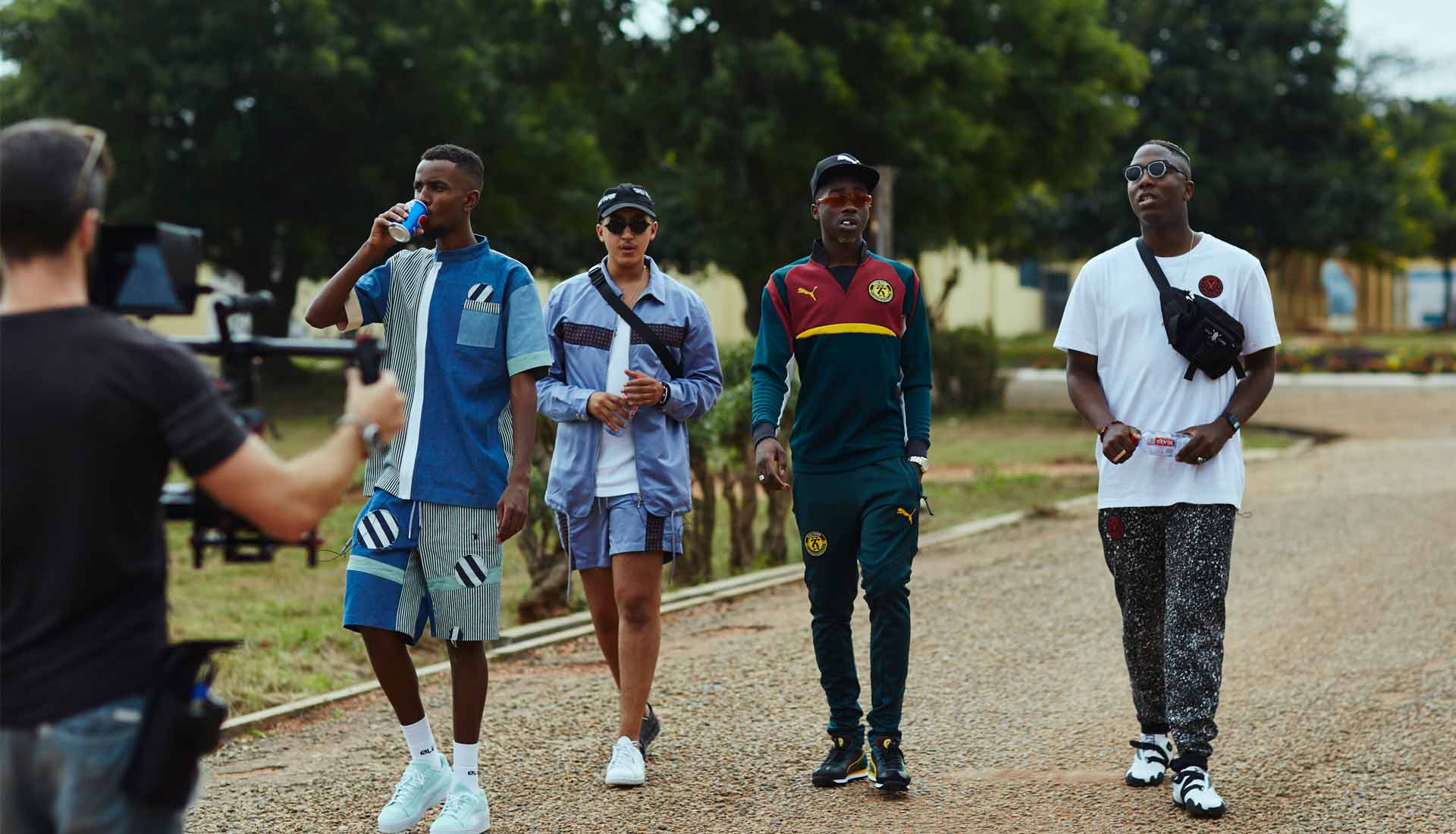
What can African football teach Europe about football?
Jefferson: Africans play to have fun. They have great self-belief and a huge amount of discipline, something that some European players don’t always have.
Hussein: I feel that here, in Africa, they really play for their country. I know a lot of football players and they don’t play as much and as passionately for their country as players in Africa do. When an African team gets eliminated the people are heartbroken. We watched Uruguay vs Ghana in a Ghanaian community of Amsterdam and the fans were distraught. When Holland lost in the World Cup Final people were disappointed but nowhere near as heartbroken as the Ghana fans, they were sad for like three weeks. And everyone hated Suarez after that!
Do you find a lot of inspiration every time you return to Africa?
Abderrahmane: Definitely, yeah. You can get inspiration from the internet, like googling articles, I do that everyday, but when you visit Africa, talk the people, link up with your friends and find out what they like to do, what they like to listen to, you get inspired in unique ways. Ways that you could never experience without being in Africa.
Hussein: Yeah, almost every conversation I have over here is like an interview. I’m constantly asking people their thoughts on things to take as much knowledge and inspiration as I can home to the Netherlands. A lot of brands don’t look at Africa as a potential market. Go to Johannesburg, Accra, Yaounde, you’ll see kids wearing adidas, PUMA, Nike.
Abderrahmane: Yeah, they’re super aware. Don’t underestimate.
You’re involved in the Right to Play project. Something you obviously all feel passionately about. Can you tell us a little bit about it?
Hussein: Where we’re from in Amsterdam, we’re spoilt with big launch events from brands almost every week. So to do something out here is so much more special. I emailed PUMA about the idea and I thought it would be a huge long-shot but they were so positive about it and really driven to make it happen.
Jefferson: Yeah, to be able to say to my mum that we came out here to Accra and built a football pitch for school kids makes me so proud. When you do an event in Amsterdam you have to plan the production for days, weeks, months, just for one evening. After that nobody talks about it. This pitch, it creates a legacy. It will change the lives of kids living here.
Abderrahmane: It inspires and encourages the girls here to try sports. Creating a platform for a country that we represent and a big thanks to Right to Play for making it happen.
Hussein: I hope that when the video of our work with Right To Play surfaces that other brands will look at it and see what they can do to inspire their communities.
How have you seen football positively effect life in Africa?
Hussein: I want more people to get acquainted with African cultures. Africa is definitely ready to host another World Cup and by hosting one would allow a lot more people to travel to this continent and see it as a potential economical market.
Jefferson: Even after the World Cup in Africa you could see trends starting. For example, in music, artists did a lot of research and used Africa as an inspiration for their own sound and also in fashion as well, and that really helped people to be more aware of African culture in general.
Abderrahmane: Culture and football is so blended in Africa, it feels so organic.
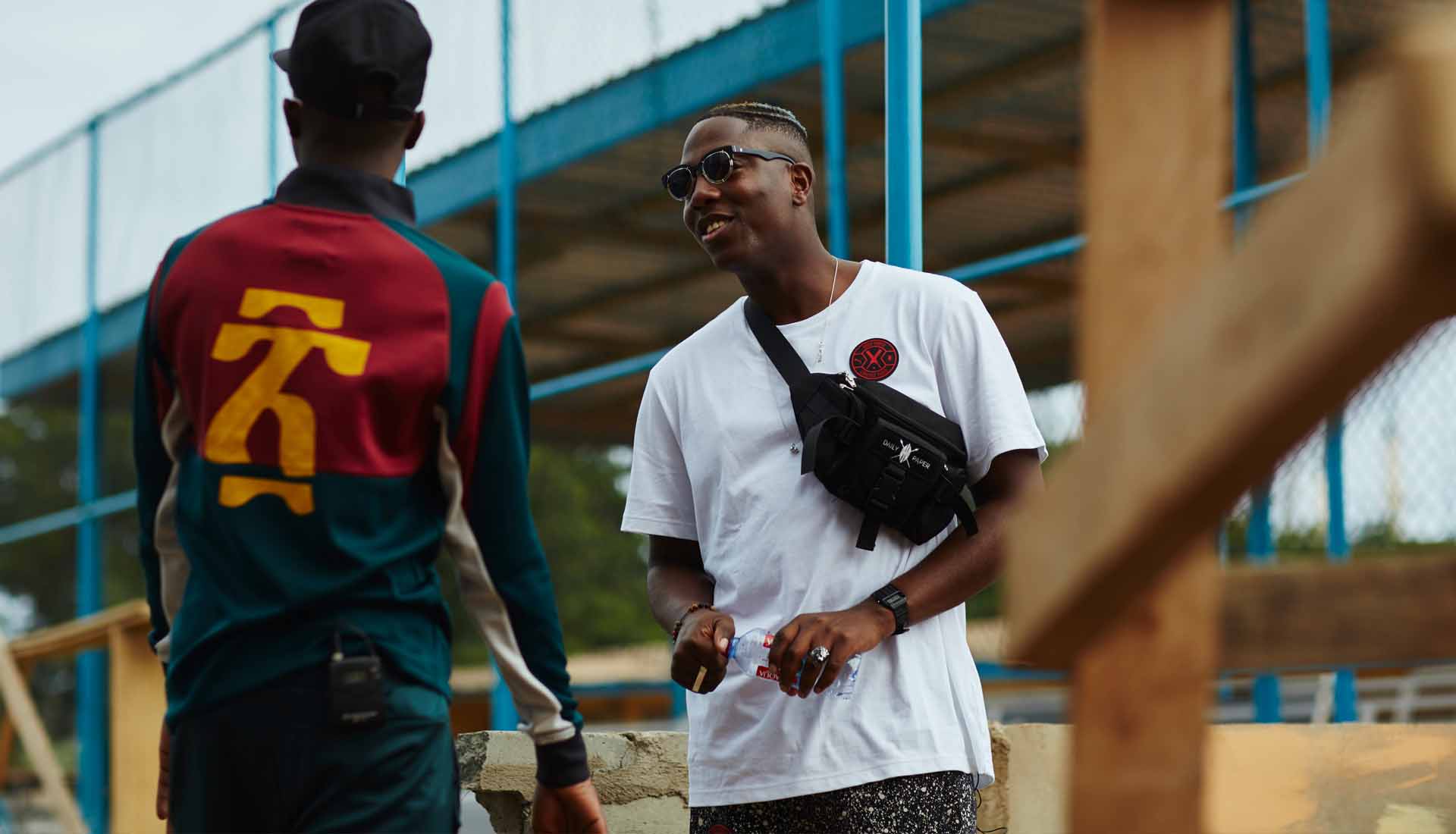
You've got MHD involved in the project too. How did that come about?
Jefferson: We met him really organically. His character really reminds us of our friends. He also has an African background and he also tries to blend the African culture with European sounds, and that’s what we do with our clothing brand.



